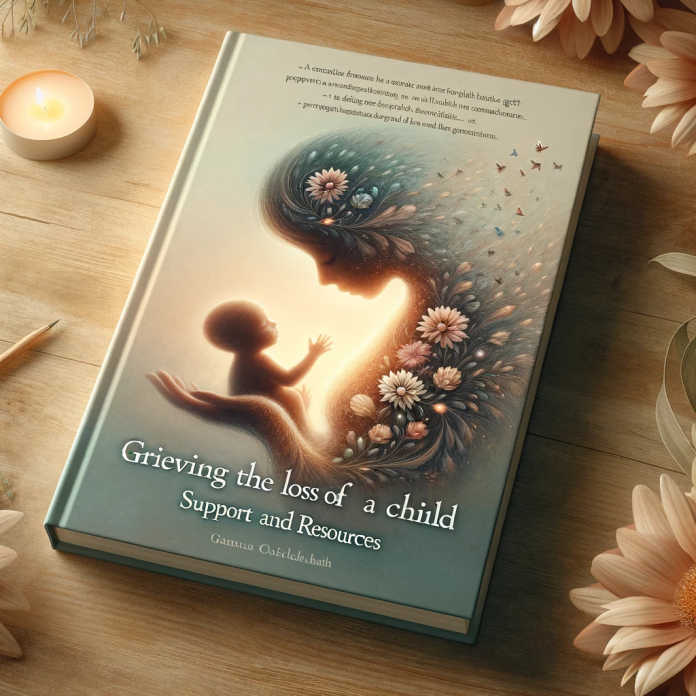The loss of a child is an unimaginable tragedy that no parent should ever have to endure. The grief that follows is profound, overwhelming, and often isolating. This article aims to provide a comprehensive guide to understanding and navigating this difficult journey, offering support and resources for those who are grieving.
Understanding the Grieving Process
Grief is a deeply personal and unique experience that varies greatly from person to person. There is no right or wrong way to grieve, and there is no timeline for how long it should take. It's important to allow yourself to feel your emotions without judgment or guilt.
Many people are familiar with the five stages of grief: denial, anger, bargaining, depression, and acceptance. However, it's important to note that these stages are not linear. You may move back and forth between them, or you may experience them in a different order. Some people may not experience all of these stages, and that's okay too.
Denial
Denial is often the first reaction to a traumatic event. It's a defense mechanism that helps us cope with the initial shock. You may find it hard to believe that your child is gone, and you may expect them to walk through the door at any moment.
Anger
Anger is a common response to feeling helpless or out of control. You may feel angry at yourself, at others, or at the world in general. It's important to find healthy ways to express this anger, such as through therapy or physical activity.
Seeking Professional Help
While it's natural and healthy to lean on friends and family for support, professional help can also be invaluable during this time. Therapists and counselors who specialize in grief can provide tools and strategies to help you navigate your emotions and cope with your loss.
Support groups can also be incredibly helpful. Sharing your experience with others who are going through the same thing can provide comfort and reduce feelings of isolation.
Finding the Right Therapist
When seeking professional help, it's important to find a therapist who is a good fit for you. You may want to consider factors such as their experience with grief counseling, their approach to therapy, and whether or not you feel comfortable with them.
Support Groups
Support groups can be found in many communities, and there are also numerous online options available. These groups provide a safe space to share your feelings, hear others' experiences, and find comfort in the knowledge that you are not alone.
Self-Care During Grief
During this difficult time, it's crucial to take care of your physical and emotional health. This can include things like eating a healthy diet, getting regular exercise, and ensuring you get enough sleep. It's also important to give yourself permission to feel your emotions and to take time for activities that you enjoy or find comforting.
Remember, there's no right or wrong way to grieve, and there's no timeline for how long it should take. Be patient with yourself and take things one day at a time.
Physical Health
While it's easy to neglect your physical health during this time, it's important to remember that your physical well-being can greatly impact your emotional well-being. Try to maintain a balanced diet, get regular exercise, and ensure you're getting enough sleep.
Mental Health
It's normal to experience a wide range of emotions during this time. You may feel sadness, anger, guilt, or confusion. It's important to allow yourself to feel these emotions without judgment. Consider seeking professional help if you're struggling to cope with these feelings.
Additional Resources
There are many resources available to help you navigate your grief. These can include books, websites, and organizations dedicated to providing support for those who have lost a child.
Remember, it's okay to ask for help. You don't have to navigate this journey alone. There are people and resources available to support you every step of the way.
Books
There are many books available that can provide comfort and understanding during this time. Some are written by professionals in the field of grief counseling, while others are personal accounts from parents who have experienced the loss of a child.
Websites and Organizations
There are numerous websites and organizations dedicated to providing support for those who have lost a child. These can provide a wealth of information, as well as opportunities to connect with others who are going through the same experience.
Recommended Products
- Tear Soup — A recipe for healing after loss, told through a warm story
- The Invisible String — A heartwarming picture book about the invisible bonds that connect us to loved ones
- Macorner Hug from Heaven Pillow — Comforting "Hug from Heaven" memorial pillow that wraps the bereaved in warmth and love.


-banner.png)





